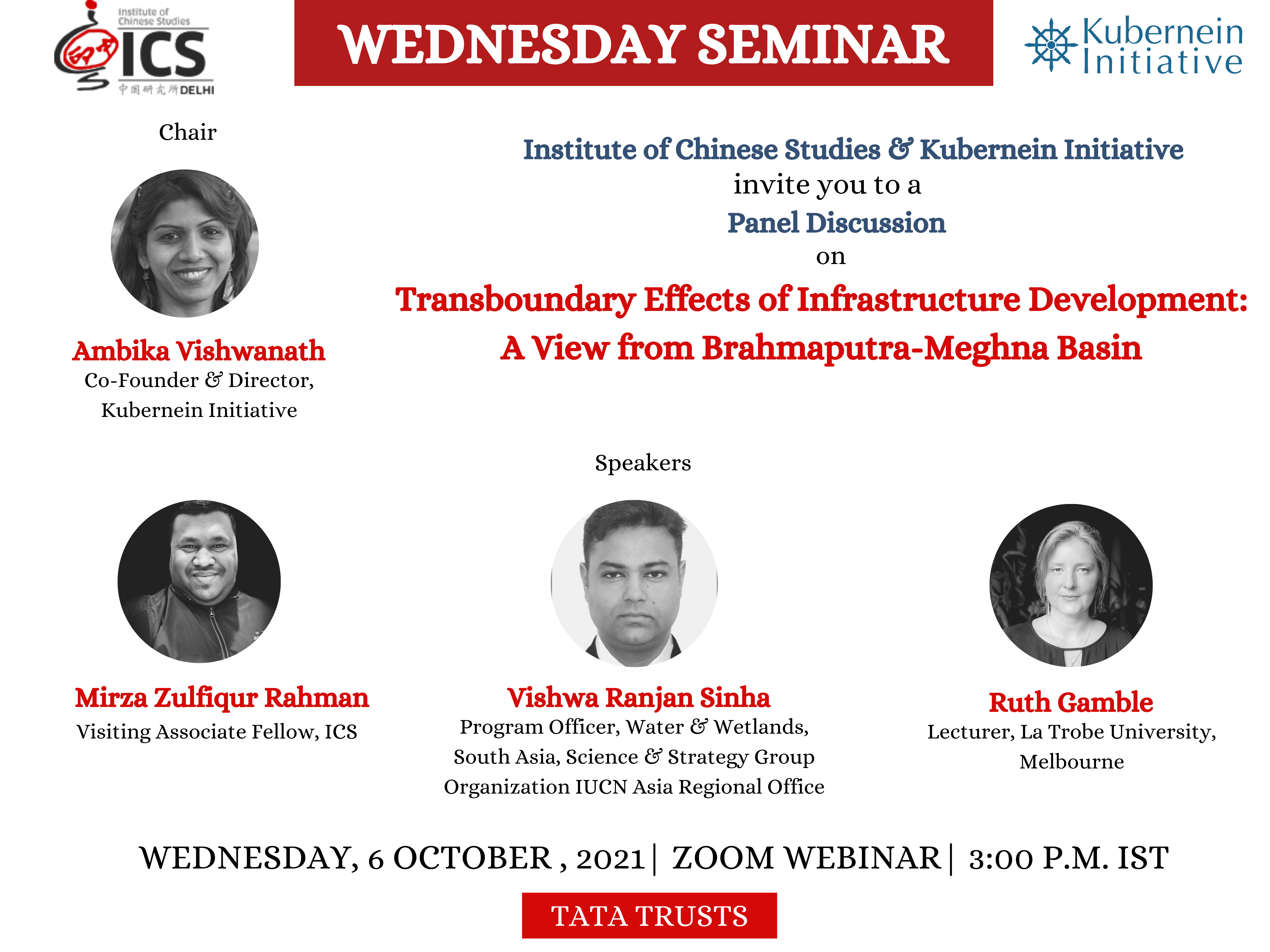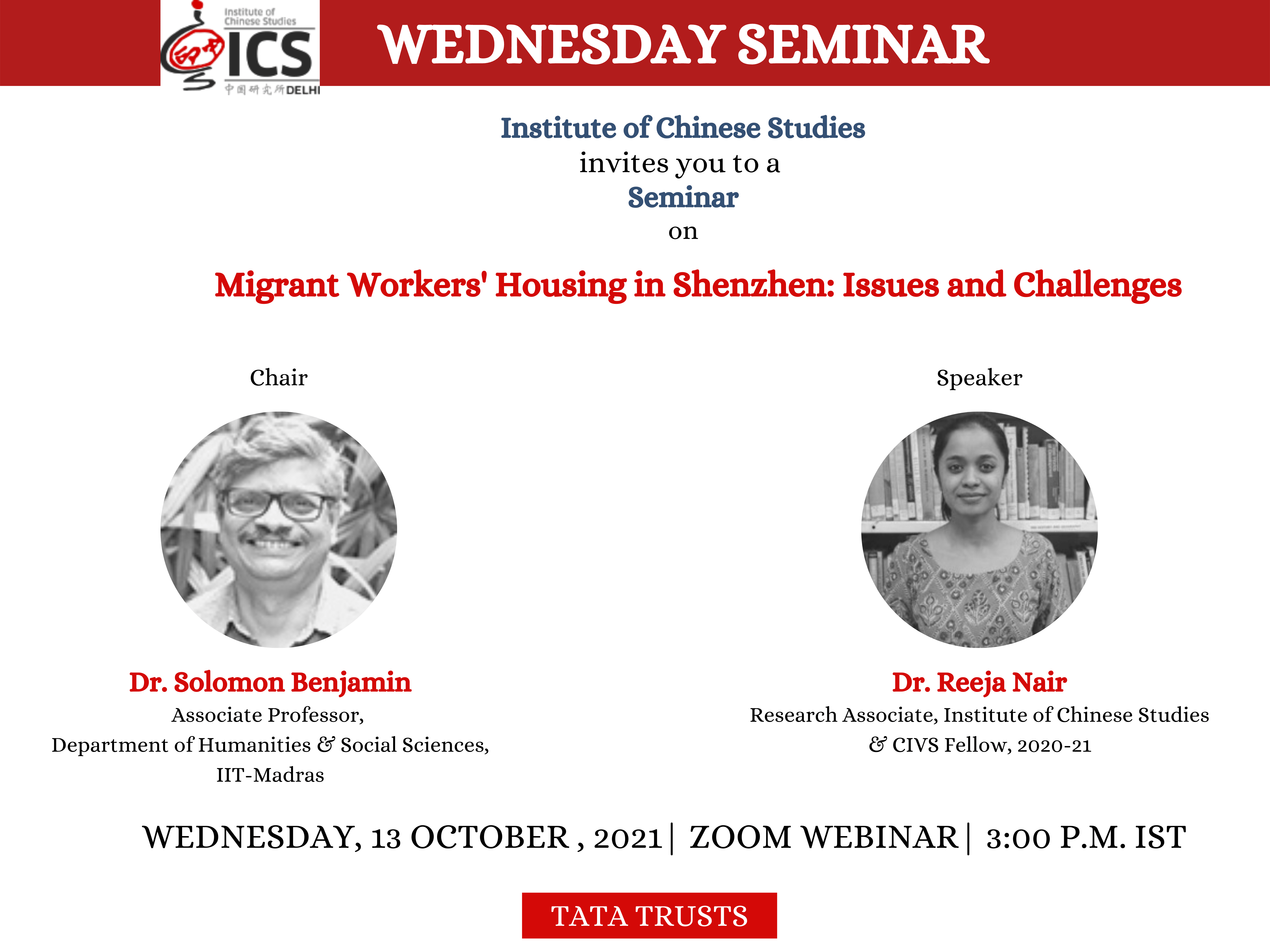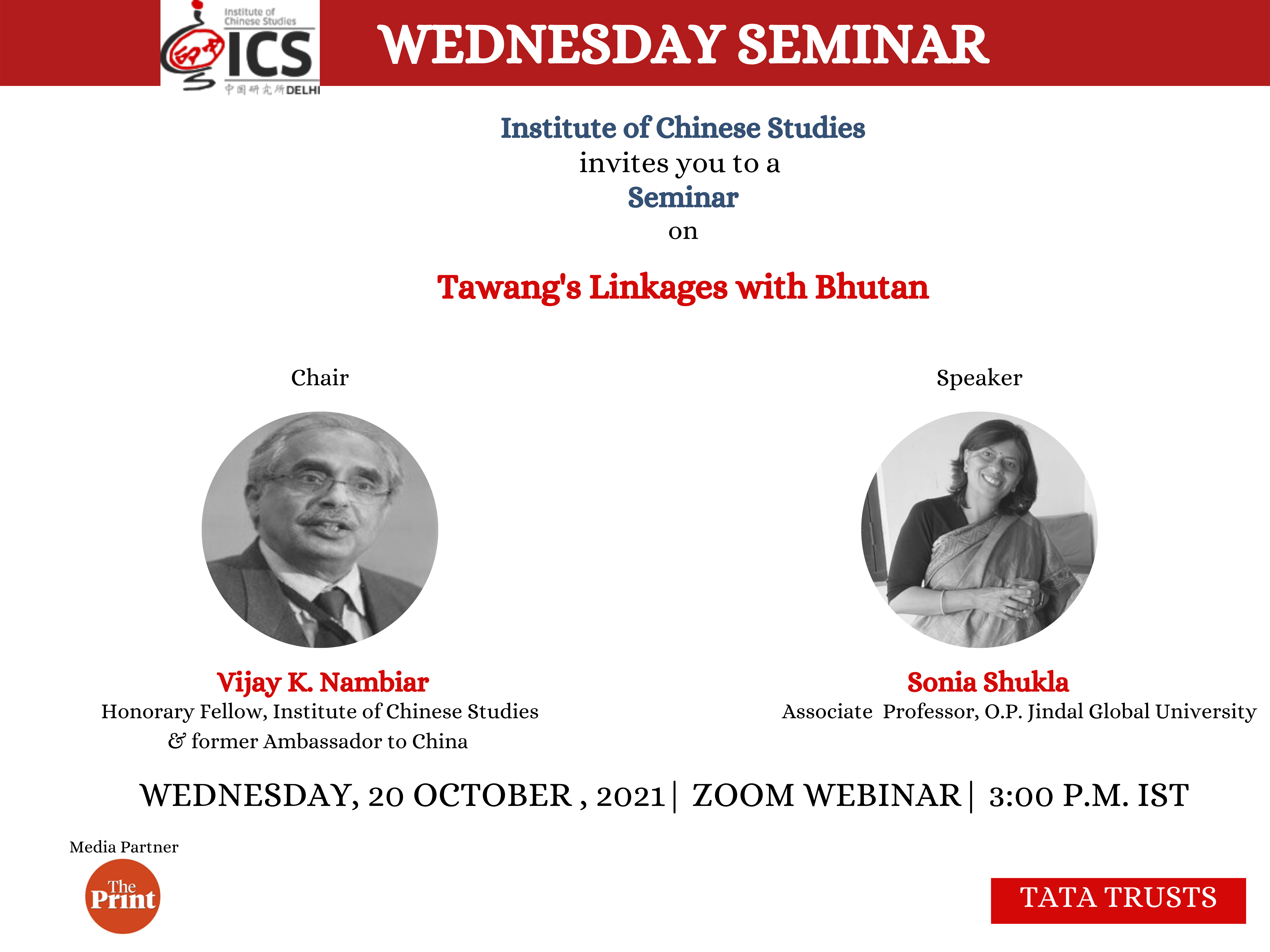 |
| |
| Transboundary Effects of Infrastructure Development: A View from Brahmaputra-Meghna Basin |
|
Mirza Zulfiqur Rahman, Ruth Gamble, Vishwa Ranjan Sinha
Wednesday Seminar | Zoom Webinar |6 October 2021
|
| |
|
The Brahmaputra River basin is shared between China, India, Bhutan, and Bangladesh. China and India have already fought a war in the territory through which the river flows. Bangladesh faces incredible human security pressures in its basin area that will only magnify with upstream river practices. River systems are managed differently in different countries, and dam-building activities and water diversion plans threaten the stability of the whole region. Still, there is no sign of an effective bilateral or multilateral water management accord in the Brahmaputra basin. Countries sharing a river need to resolve the issues through effective hydro-diplomacy. Changes in a river’s dynamics are considered ‘legitimate rights’ of countries on the rivers passing through their territories. However, the bilateral tensions that spur the dam-building race make the river a victim with devastating consequences for the fragile ecology and the people of the region. Countries in the Brahmaputra basin share the same water resources and ecological corridors. Any disaster that strikes upon a country will have a transboundary impact on other countries in the region. Due to these associated disaster risks, countries in the region require data sharing and cooperation at a multilateral level. Can addressing water-security challenges using a disaster lens create an alternative pathway for pooling resources, building political will, preventing conflicts, and promoting transboundary cooperation between India and China? This seminar discussed all these issues and more.
|
| Listen> |
|
|
 |
| |
| Migrant Workers’ Housing in Shenzhen: Issues and Challenges |
|
Reeja Nair
Wednesday Seminar | Zoom Webinar |13 October, 2021
|
| |
|
In its Thirteenth Five Year Plan in 2016, the government of Shenzhen announced that establishing housing for ‘talent workers’ will be a priority for public housing in the future. In pursuance of this, in August 2018, the Shenzhen Municipal Housing and Construction Bureau announced that by 2035 at least 1 million housing units would be designated as housing units for non-local professionals. Currently, government-funded homes make less than 20% of the total housing stock in Shenzhen. Until recently, only Shenzhen hukou holders could buy or apply for housing in Shenzhen. The new policy changes that. This seminar analysed the government policy of prioritizing housing based on skills (talent workers) by allocating affordable housing in the form of talent workers’ housing (TWH) and tried to understand whether skill could be the basis for efficient allocation of housing for migrant workers in Chinese cities.
|
| Watch> |
|
|
 |
| |
| Tawang’s Linkages with Bhutan |
|
Sonia Shukla
Wednesday Seminar | Zoom Webinar |20 October, 2021
|
| |
|
The Tawang region in Arunachal Pradesh has traditionally been known to draw its linkages from Tibet. Its ethnicity and religious practices are derived directly from Tibet. Until 1951, even the administration of the area was done through the ecclesiastical dispensation headed by the Dalai Lama who ruled Tibet. This is well known and documented. What has remained somewhat covered in a shroud in the historical study of the region is the linkages that Tawang has shared with Bhutan and how it forms a part of the larger Himalayan culture. For those who argue that the region known as Tawang Tract is disputed and that Tibet draws its claim to the region unambiguously, this seminar of Tawang’s historical linkages to Bhutan attempts to illustrate the cultural connections all along the Himalayas. Tibet had a huge impact on the shared cultures of the region but the issue of territorial rights in the modern sense does not draw directly from those linkages.
|
| Read More> |
|





